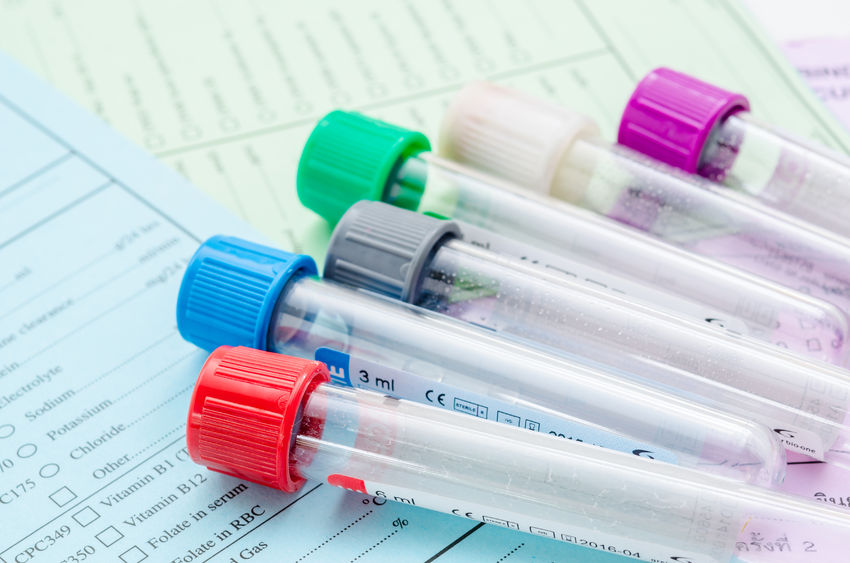
Apolipoprotein E Genotyping
Also known as Apolipoprotein E Genotyping BloodWhat is this test?
Apolipoprotein E genotyping blood test detects the presence of different types of Apolipoprotein E alleles named E2, E3, and E4 in the blood. This test helps to determine the risk of Alzheimer’s disease (AD).
What are Apolipoprotein E and Alzheimer’s disease (AD)?
Apo E is mainly produced by the liver and helps in cholesterol breakdown. It is also produced by astrocytes (nerve cells) and known as the primary cholesterol carrier in the brain.
In the nervous system, Apo E is involved in the production, degradation, and removal of Amyloid Beta. It is a protein involved in neural growth and repair. If this protein is not properly degraded or removed it clumps into plaques that lead to nerve cell death. Overproduction or failure of clearance of amyloid beta can lead to a neurogenerative disorder called Alzheimer's disease (AD). An AD is the most common type of dementia that results in problems with memory, thinking, and behavior. If the astrocytes are not producing sufficient levels of Apo E it may disrupt the normal function of amyloid beta.
Alzheimer’s disease (AD) is a neurogenerative disorder that affects memory and other important mental functions. This disease may develop with an increase in age and the exact cause for this condition is unknown. Many reasons can lead to this condition. Overproduction or failure of clearance of amyloid beta is one cause for the development of this condition. Most common signs and symptoms of Alzheimer’s disease (AD) are difficulty in remembering newly learned information, problems with thinking or behavior, forgetting events, misplacing personal belongings, inability to recognize people, impaired speaking, reading or writing, etc.
Apolipoprotein E has three different types of alleles named E2, E3, and E4. The Apo E2 allele is the rarest and Apo E3 is very common. The presence of Apo E4 is associated with the risk of Alzheimer’s disease (AD).
The Apolipoprotein E Genotyping helps to determine the presence of Apolipoprotein E4 allele in the blood. Detection of Apolipoprotein E4 allele reflects the risk of Alzheimer’s disease (AD).
Why this test is performed?
This test is performed to determine the type of Apolipoprotein E alleles in the blood. Your doctor may ask to perform this test if you have a family history of Alzheimer’s disease (AD) or if you experience any signs and symptoms of Alzheimer’s disease (AD) such as difficulty in remembering newly learned information, problems with thinking or behavior, forgetting events, misplacing personal belongings, inability to recognize people, impaired speaking, reading or writing, etc.
How often this test is performed?
If you have a family history of Alzheimer’s disease (AD) your doctor may ask to perform this test in a 6 monthly or a yearly basis. If you are diagnosed with Alzheimer’s disease (AD) then you may have to perform this test on a regular basis as instructed by the doctor.
Also known as Apo E Genotyping Blood, Apo E Genotyping.
Test Preparation
Inform your doctor if you are on any medications, have any allergies or underlying medical conditions before your Apolipoprotein E Genotyping. Your doctor will give specific instructions depending on your condition on how to prepare for Apolipoprotein E Genotyping.
No special preparation is required for this test. Sometimes your healthcare provider may ask to fast (without eating anything) for several hours. However, follow all the instructions given by your healthcare provider.
Understanding your test results
If the Apolipoprotein E Genotyping test detects the presence of Apo-E4 in the blood, it may indicate the risk of Alzheimer’s disease (AD). However, your doctor may ask to perform a few more additional tests along with this test to confirm the diagnosis.
If the Apolipoprotein E Genotyping test detects the presence of Apo-E2 and E3 in the blood, it may indicate the risk of lipid disorders and heart diseases.
Based on the test results, your doctor may advise appropriate medical treatments or further diagnostic tests.
| Gender | Age groups | Value |
| UNISEX | All age groups | Apo e4 copies are seen in Alzheimer Disease |

